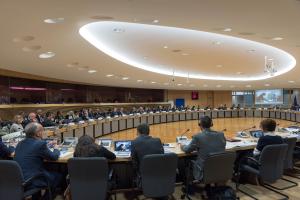The Italian company Belleli Energy is but one example of how ITER can help European businesses to grow and thrive through development opportunities and job creation: "Thanks to ITER, the staff of our company grew from 300 in 2010 to 1,000 today," reports CEO Paolo Fedeli.
Spin-off technologies is another area with great potential. Participants discussed how spin-offs, spill-overs, start-ups and applications resulting from ITER-related contracts can promote development in other technological and industrial areas.
Jérôme Pamela, the chairman of EUROfusion, Europe's fusion energy think tank, pointed to ITER's impact on scientific research potential: "Facts speak for themselves. ITER, which provides us a common goal, is a key driver for 2,000 research positions that exist in the member states. Without ITER, there would be far fewer researchers involved."
It was not just about opportunities for Europe in Europe. As an international scientific project with 35 member states from three continents, ITER provides fertile ground worldwide for global technology cooperation, business opportunities, partnerships and innovation.
Click on these links to read speeches by the French Minister for Research, Education and Innovation, Frédérique Vidal, in French and English, and by the EU Commissioner for Climate Action and Energy, Miguel Arias Cañete, in English.



